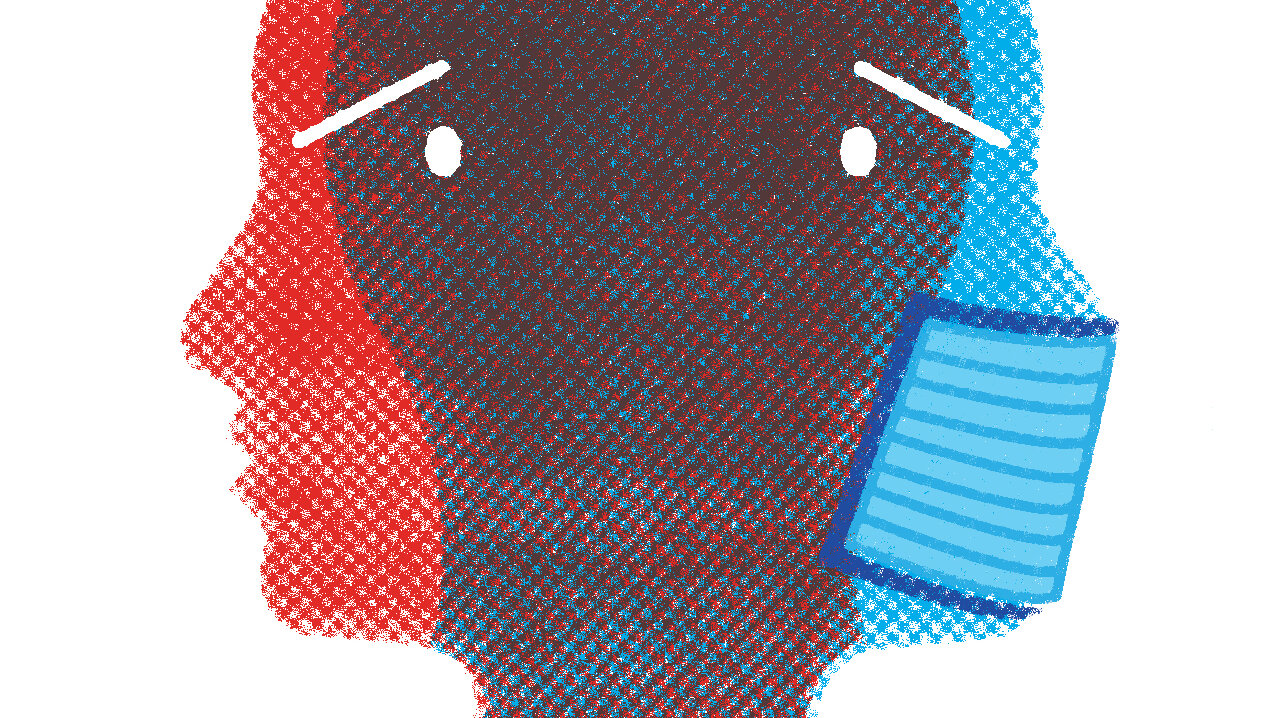
Hi. Welcome to On Politics, your guide to the political news in Washington and across the nation.We’re your hosts, Blake and LeahWe’ve both been covering politics a long time, and we’ll use what we’ve learned to unpack and illuminate the bigger themes confronting the country. Each weekday evening, we’ll draw on our own reporting and The Times’s newsroom to bring your attention to a few truly important things.Talk to us! We want to hear from you. Don’t hesitate to drop us a line with ideas, questions, gripes, interesting links or tips: [email protected].With that, here we go:Tough choices all around
The Omicron variant of the coronavirus struck at the most inconvenient time: just as millions of Americans were traveling for the Christmas and New Year holidays. Suddenly, family gatherings were once again shadowed by menace and risk of infection — but also by a new layer of uncertainty and confusion.All of which served to drive Americans to new heights of exhaustion with the toll the virus has taken on ordinary life.It remains a serious public health emergency, with daily coronavirus cases soaring into the hundreds of thousands. But the pandemic also presents difficult political choices for elected officials, from President Biden on down, just as election season begins in earnest.Democrats could enter the 2022 midterms as the responsible grown-ups who finally tamed a deadly scourge. Or, if Republicans succeed in branding mask and vaccine mandates as nanny-state overreach, voters could punish them in the fall. Most likely, both narratives will compete for attention as the virus itself casts the determining vote.“Everyone up and down the chain is frustrated,” said Frank Luntz, a Republican messaging expert who has spent the last year conducting focus groups on the virus. “And it just doesn’t seem to end.”Worn out, fed up and confused
There is no mistaking the signals that Americans are sending at this moment:A Monmouth University poll taken two weeks after Omicron was first detected in the United States found that six in 10 Americans said they were “worn out” by the pandemic, and nearly half said they were angry.Since January 2021, the public’s initial exuberance about the arrival of vaccines has curdled. More than 58 percent reported feeling “frustrated” about the status of Covid vaccinations in a recent Kaiser Family Foundation poll. A quarter said they were “confused.”According to Gallup’s Covid tracking survey, optimism about the state of the pandemic reached 51 percent in October only to plummet to 31 percent in December. The percentage of Americans who said the situation had gotten worse shot up to 35 percent from 18 percent.But polls also show a deep divide between those vaccinated and not, and Omicron has barely budged the latter.“As a nation, we’re not experiencing the pandemic equally,” said Mollyann Brodie, who oversees polling for the Kaiser Family Foundation.Science vs. impatience
While Omicron — so far — appears to be less vicious than its predecessors, the explosion of cases has evoked grim memories of early 2020, when the coronavirus ripped through unprotected American cities so quickly that health workers had to place corpses in refrigerated trucks.This time, public health officials are having to factor the public’s waning patience into their epidemiological calculations.When asked on CNN to explain why the Centers for Disease Control had reduced the recommended quarantine period from 10 to 5 days, Rochelle Walensky, the agency’s director, first walked through a number of scientific arguments. But she then acknowledged, “It really had a lot to do with what we thought people would be able to tolerate.”Scott Gottlieb, a former F.D.A. commissioner in the Trump administration, credits the Biden administration for its aggressive rollout of the vaccines, and in particular the speed with which it made booster shots available.Still, he said, its ostentatious displays of deference to “the science” have fed charges of hypocrisy whenever decisions appeared to incorporate other considerations.“The Biden administration kind of handcuffed itself coming in because of this narrative that all of the problems under Trump were created by interference in the scientific process,” he said. Now, he added, “I think they have buyer’s remorse.”The Trump factor
Omicron’s arrival also has fostered a rare détente between the current president and his predecessor.When Trump recently told an audience in Dallas that he’d gotten a booster shot, some in the crowd began to boo. What happened next was fascinating: He didn’t back down.The booing, Trump said, was coming from “a very tiny group over there.” Then later, at the same event, heBy: Blake Hounshell and Leah Askarinam
Title: A Frazzled America Staggers Into 2022
Sourced From: www.nytimes.com/2022/01/03/us/politics/midterm-elections-coronavirus.html
Published Date: Tue, 04 Jan 2022 00:00:06 +0000
Read More
 UK PoliticsWorld PoliticsVideosPrivacy PolicyTerms And Conditions
UK PoliticsWorld PoliticsVideosPrivacy PolicyTerms And Conditions
